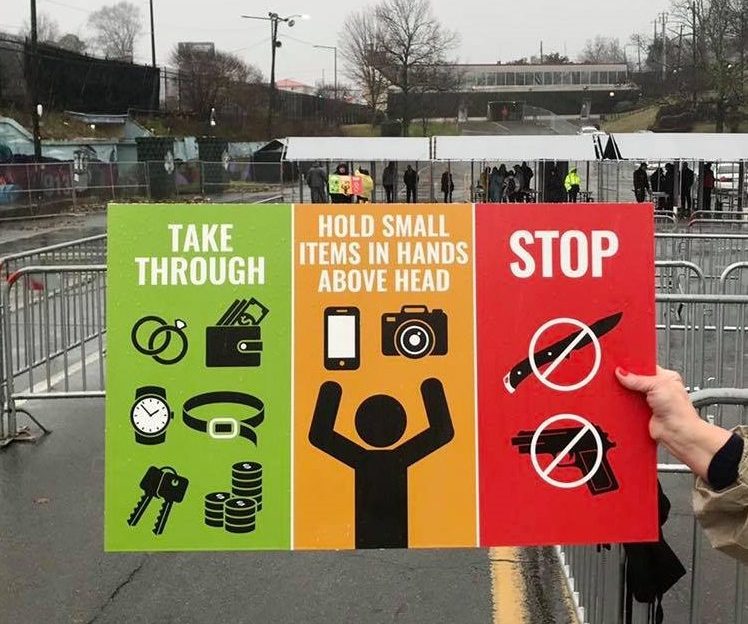OP-ED: Inequalities are Intensified in a Crisis, Pandemic

By Kanika White
I’ve been thinking deeply about the effects that this pandemic will have on black people and our communities and I must say for a brief moment, I thought to not address or discuss it along the lines of race because everybody is dealing with it and “the powers that be” will surely use that as an excuse to not give sufficient attention and resources to the communities that suffer the most.
When folks say, “when America gets a cold, black people get the flu”, that is real and it’s a shame. Our communities deserve extra attention and resources and until America redresses the destruction of its policies and laws on the black community, we will always have to view everything along the race line.
The truth is that our communities cannot afford to slack in our fight for economic, political, and social justice/empowerment- not even during a national crisis. In fact, we must insist all the more fervently, that our specific needs and issues are on the table and met with adequate resources to ensure that the current disparity gaps that exist don’t widen.
Black people are still trying to regain ground lost during the 2008-2009 economic recession. It was widely touted and accepted that America had recovered, families had recouped much of what they had lost, businesses were on the rebound, and Wall Street had survived. Unfortunately, the black community had not experienced that recovery to the same degree – not even close, and here we are facing another economic downturn, the loss of jobs, incomes, and potentially homes and businesses. This is going to be (even more) devastating to black people, both individually and collectively. Unless a resolution is made now to stem the damage and include provisions in the forthcoming plans to revive an economy that is robust, comprehensive, sufficient, and long-term.
Knoxville government can look to the efforts of Maynard Jackson when he was Mayor of Atlanta, GA in the 1970s, as they create plans designed to meet the needs of everyone but also include provisions to ensure that this crisis does not exacerbate the socio-economic racial inequities that currently exist.
Dealing with the fierce opposition of the white power structure in Atlanta during his term, Mayor Jackson mandated that all public contracts would include a 25% set-aside for minority businesses. Jackson threatened to move City money from Atlanta Banks if they did not diversify their Boards and staff, and focused “his efforts on reforms for African Americans’ needs, particularly affirmative action programs.” By doing so Atlanta became a hub of black entrepreneurship, ingenuity, and innovation – the black middle class was created. He sparked a sort of political and economic revolution across America as cities followed suit. Cities elected their first black representatives and implemented similar reforms to advance economic inclusion for black constituents.
That was not an easy thing to do. It took courage, vision, and a level of determination and astuteness capable of out-pacing and defeating antiquated social norms, the status quo, discrimination, and the gall to unyieldingly stand face-to-face against blatant racism.
Jackson refused to give in to fear, threats, or bribes. It can be done and must be done by making systemic reforms for longevity and maximum impact.
We can no longer play nice with racism. The time is ripe, and the day has come to fight it and destroy it at the root. We cannot afford to spare feelings or appease the social elite or consider the sensibilities of those who enjoy and make good use of white privilege.
Black and white middle classes are suffering, lagging further and further behind. These times require bold, outspoken, strong leaders who will use their positions to right wrongs, correct records, and end discriminatory policies and practices. Leaders who champion and enforce diversity, require and mandate economic and political equity, and who will stand at the forefront of real inclusion of all peoples.
ABOUT: Kanika White is the CEO of Knoxville Equity Partners: Art, Academics, Enterprise, LifeStyle, Culture. KEP promotes civic engagement and racial equity. Our goal is to connect and create a dialogue among the many groups, organizations, and leaders in our communities in order to build a cohesive unit that can collectively resolve problems, create opportunities, and make a positive impact on social problems too large for any one group to solve.
To learn more visit lkjlj website. You can contact Executive Director Kanika White by email; knoxvilleequitypartners@gmail.com.
(Disclaimer: Contributed commentary is from our readers and does not necessarily reflect the position of the ETE.)







